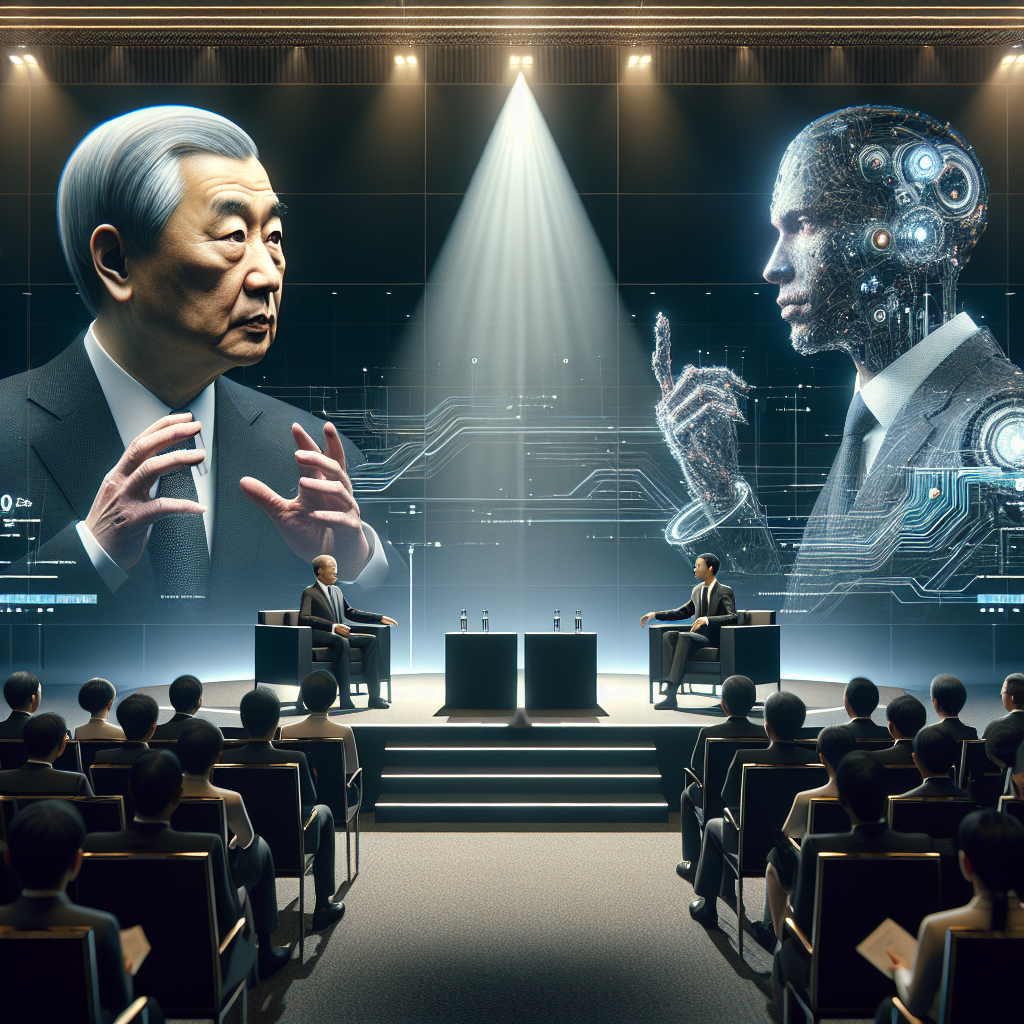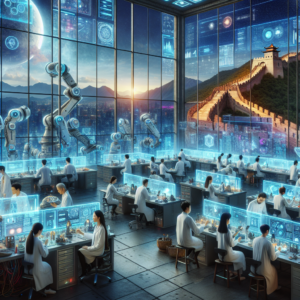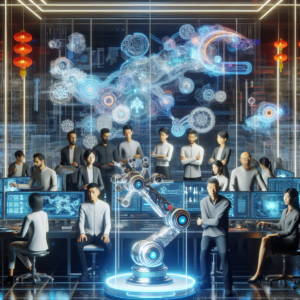China’s Former UK Ambassador Clashes with ‘AI Godfather’ at Summit
In a significant development at an international summit, a heated exchange took place between China’s former ambassador to the UK and one of the leading figures in artificial intelligence (AI), often referred to as the “AI godfather.” This clash not only highlighted the growing tensions between the two nations but also underscored the critical discussions surrounding the future of AI technology and its implications on global relations.
The Background of the Summit
The summit aimed to bring together leaders from various fields to discuss the future of technology, economics, and international relations amidst evolving global dynamics. With the rise of AI as a dominant force in technology, discussions around its implications on governance, ethics, and global security have become more pertinent than ever.
China’s former ambassador to the UK has remained a prominent voice in international discourse, advocating for stronger diplomatic ties between nations while emphasizing the importance of dialogue and understanding in a rapidly changing world. Meanwhile, the AI godfather, a title attributed to one of the most influential figures in AI research and development, advocates for the responsible development and deployment of AI technologies.
The Exchange of Ideas
During the summit, the exchange between the former ambassador and the AI expert began with a series of presentations that outlined the potential benefits of AI in various sectors, including healthcare, education, and environmental sustainability. However, as the discussion progressed, differences in perspectives led to a vibrant, at times contentious, debate.
The former ambassador expressed concern over the ethical implications of AI deployment, particularly in authoritarian regimes. He argued that AI could exacerbate existing inequalities and enable surveillance states, raising questions about privacy and individual freedoms. His assertion was rooted in the belief that unchecked AI deployment could undermine democratic values not only in China but globally.
On the other hand, the AI godfather defended the technology, emphasizing its transformative potential and the benefits it could bring to societies. He argued that the fears surrounding AI were largely unfounded and that, with proper regulations and ethical guidelines, AI could be harnessed for the greater good. He cited examples of AI improving healthcare outcomes and optimizing resource allocation as evidence of its positive impact on society.
The Broader Implications for International Relations
This clash of ideas reflects broader tensions in international relations, particularly between China and the West. The growing divide over technology governance, human rights, and democratic values has led to an increasingly polarized environment. The debate at the summit serves as a microcosm of these larger issues, illustrating how technological advancements are not only reshaping industries but also influencing global power dynamics.
The former ambassador’s perspective brings to light the necessity for nations to collaborate on establishing international norms governing AI technology. He emphasized that without a unified approach, the world risks entering a new era of technological imperialism, where powerful nations leverage AI to dominate weaker states, further entrenching global inequalities.
In contrast, the AI godfather’s optimism about the technology suggests a belief in the potential for collaboration and innovation to transcend national boundaries. He called for increased investment in AI research and development, advocating for partnerships between countries to foster innovation while ensuring ethical practices.
Public Perception and the Role of Media
The summit and the resulting clash of ideas have attracted significant media attention, reflecting the public’s growing interest in the implications of AI on society. As citizens become more aware of AI’s potential impact on their lives, the demand for transparency and accountability in AI development is likely to increase.
Media coverage of the summit highlights the necessity for ongoing dialogue surrounding AI ethics and governance. It underscores the importance of engaging a broader audience in discussions that were once confined to academic and governmental circles. The role of media in shaping public perception of AI will be vital in ensuring that diverse voices are heard and that the technology’s development aligns with societal values.
The Path Forward: Collaborative Efforts and Ethical AI Development
Looking ahead, the future of AI and its implications for international relations will depend significantly on the ability of nations to collaborate and establish ethical guidelines. The former ambassador’s call for cooperation is echoed by many who believe that an inclusive dialogue is essential for harnessing the potential of AI while mitigating its risks.
The AI godfather’s emphasis on innovation also points to the need for countries to invest in research and development initiatives that prioritize ethical considerations. As AI continues to evolve, it is crucial for stakeholders, including governments, researchers, and civil society, to engage collaboratively in shaping the future of this technology.
Adopting a proactive approach to AI governance will not only help build trust between nations but also ensure that the technology serves the interests of humanity as a whole. By establishing transparent frameworks and ethical guidelines, countries can work together to create a global landscape where AI is deployed responsibly and equitably.
Conclusion
The clash between China’s former ambassador to the UK and the AI godfather at the summit serves as a reminder of the complexities surrounding AI technology in today’s geopolitical landscape. As nations grapple with the implications of AI on their societies, the need for constructive dialogue, collaboration, and ethical governance has never been more critical.
The future of AI is not solely a matter of technological advancement; it encompasses broader questions of ethics, international relations, and the fundamental values that guide human progress. Navigating this landscape will require a concerted effort from all stakeholders to ensure that AI develops in a manner that is beneficial for all. As discussions continue to unfold, it remains imperative for nations to come together to foster an environment where innovation thrives, and ethical considerations are at the forefront of AI development.



